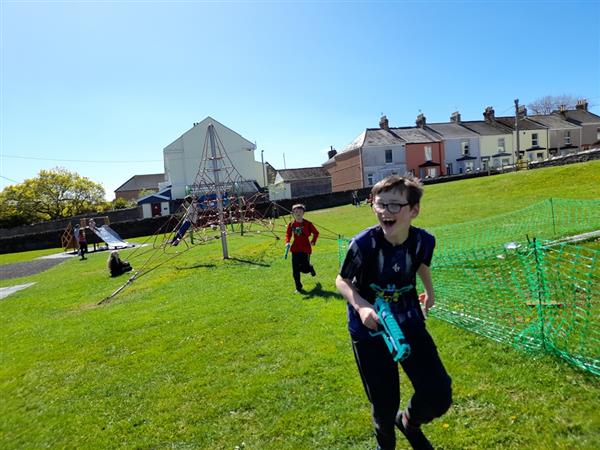|
||||
|
||||
|
|
||||
A street-based youth project that protects vulnerable young people who are at risk of being exploited and lured into criminal activity is successfully helping to turn lives around. For the past four years, the Office of the Police and Crime Commissioner (OPCC) has continued to fund Devon-based Space Youth Services to run its Assertive Outreach programme. Youth workers predominately work with teenagers by visiting locations where youngsters are known to congregate, often causing upset within the local community due to antisocial behaviour. Over time they gradually build up a good rapport and provide the support needed to keep the young people safe, unlock their potential and restore peace within communities. Predominantly, Space works with young people across Devon aged between 11 to 19 years old, but it says the ages of those in need of help is getting younger and younger. The demand for such services such as Space has been highlighted during Operation Scorpion, the 12th collaboration between the five Police Crime Commissioners and police forces in the South West region - Dorset, Devon & Cornwall, Avon & Somerset, Gloucestershire and Wiltshire. During the week-long crackdown from June 23 to 29 – which also coincided with the national County Lines Intensification Week - police teamed up with the South West Regional Organised Crime Unit (SWROCU) to target those who exploit children, help drug dealers or choose to look the other way. During the week, Devon & Cornwall Police achieved: Devon, Cornwall and Isles of Scilly Police Crime Commissioner Alison Hernandez’s top priorities include preventing young people from being drawn into antisocial behaviour and violence. She said: “The exploitation of young people will not be tolerated and more needs to be done to support them to avoid the perils of illegal drugs, alcohol and vaping. That is why I fund a range of services to help youngsters tackle these dangers and am encouraged by the vital support Space is delivering to protect our young people and reduce reoffending. “I will continue prioritising tackling drugs and drug abuse and support the police in every way I can to keep up the momentum through successful initiatives such as Operation Scorpion.” Registered charity Space believes the closure of youth centres in many communities, and the reduction in investment for youth services, has contributed to increases in criminal activity. Space offers a wide variety of services for young people including seven youth centres in Devon, mobile youth clubs, digital youth sessions and individual support. Its Assertive Outreach programme began as a pilot in Newton Abbot around nine years ago, following a grant from the Home Office in response to County Lines activity, and is now funded by the OPCC. Interventions have proved successful in problematic areas across Devon and Cornwall such as Helston, Tiverton, Exmouth and Ilfracombe. Among the young people whose lives have been transformed by the Assertive Outreach project is a 15-year-old who was permanently excluded from school and deemed to be at significant risk due to having been arrested multiple times and struggling with their mental health, instability and trauma. They were at heightened risk of criminal exploitation due through often going out of town and hanging around with older young people. The teen had disengaged from nearly all professionals and services. However, regular visits and fun activities organised by Space youth workers in the places they congregated created a safe, familiar face and the first opportunity in a long time to choose connection over conflict. The young person agreed to take part in one-to-one sessions and work with other agencies. The teen continues to attend Space regularly, is in part-time employment, and is preparing to start a Level 2 college course in September. The teen has admitted that if it was not for the support of Space “things could have gone differently”. Dan Barton, CEO of Space Youth Services, says it is just one of many examples of how transformative it is when support is offered when young people need it most. He said: “In a period of significant physical upheaval – adolescence - some young people can also find themselves recovering from adverse childhood experiences such as domestic violence and substance abuse in the home. Their challenges to navigate their transition can often lead to exclusion from school and feeling like no one is really looking after them. “These factors 'push' them away from places of safety such as education and family. This sense of isolation can then lead to them searching for the security of replacements. “There is a clear correlation between young people who have been excluded from school and participation in society and their risks of exploitation. There are predatory people, usually not too much older than themselves, who can offer esteem, 'security', at times money and in effect 'pull' them into high areas of risk. “This can then be compounded by what is in effect modern slavery and exploitation. Most are then coerced and/or blackmailed into moving further away from safety. “The Assertive Outreach model that we and our partners deliver across the south west peninsula is designed to establish the fact that we (society) care and that there is optimism and hope in their transition to adulthood. We do this via good old fashioned youth work. “In essence, the police notify us of groups of young people who are at risk of exploitation or are displaying the early signs of disengagement (antisocial behaviour). Our youth workers then go to where they hang out such as skate parks, car parks and beaches, and work with them for a period of time. “Often, they bring a football and hot chocolate to slowly build a relationship with them. Eventually they realise we are there to help and they open up about some of their experiences, behaviours and risks they are taking.” Diversionary tactics and adrenaline-based activities such as boxing and go karting are also introduced to replace unhealthy risk taking and encourage relationship building with safer risk taking and relationships with trusted adults who have their best interests at heart. Youth workers also get their families involved, where appropriate, and refer them onto other services. Dan continued: “The outcomes for them as individuals is profound and ensures they understand the choices they make will have ramifications for years to come - both good and/or bad. For the community build bridges between the groups and we see the actual or perceived antisocial behaviour reduced. “The young people can also receive continued support from their local youth club, where they exist, once we have moved on. “Not all groups will engage with us but the level of engagement is far more than people may expect because we are positive for and about young people and they know that we are not there to blame, punish or chastise them; we help them find their way and navigate their transition into adulthood safely. Some have even become youth worker apprentices and work for us now.” Space also has an OFSTED registered, early intervention alternative education provision called Chances in Dawlish which helps secondary school students who, for a range of reasons, are struggling in mainstream school and are at risk of being excluded. To find out more about Space visit https://www.space youth services.org, email info@spacepsm.org or call 01392 662112. The Children’s Society is running a campaign called LookCloser which encourages everyone to learn the signs of child exploitation and how to report it if worried. For more details visit #LookCloser To Spot Exploitation | The Children's Society | ||||
Reply to this message | ||||
|
||||
|
|
|






